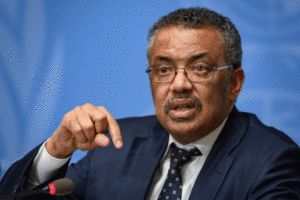As the day of exiting the European Union draws closer, and the period of rules and regulatory transition slowly steps into place, until the end of Dec. 2020. It is therefore very important to consciously reexamine the opportunities and challenges of short term Post-Brexit, as Britain goes it alone reminding itself of a once global trading and political power in an emerging fragile globalization.
The exiting of Britain from the ever-closer political-economic European integration, is most likely going to throw open the space of global power politics, re-emphasising the thoughts of John Mearsheimer, in his classic book, “The Tragedy of Great Power Politics”, where he boldly states that great- power rivalry is not over. With the final ratification of the UK/EU Withdrawal Agreement by the EU parliament on the 29th Jan, 2020, stamping the end of Britain’s membership of the Union. I see a new dynamic restructuring of the international system, and the international political economy global order.
How did Britain arrive at this situation, one strategic point of interest would be geography, Britain is an island, and has been since geologically Brexiting from the continent 8,000 years ago, and its history, unlike most of western Europe, it has not spent the past few centuries as a battlefield, but Its history, rather, is that of globality and imperialist.
This conceptualisation, plus the second world war heroics, has given it a profound sense of exceptionalism, reinforced by relative economic success and an overwhelmingly Eurosceptic popular press that adores dripping corrosive untruths about Brussels.
All this perception eventually combined to create the impression that the EU was essentially an anti-British global influence plot, something that was somehow done on the country by the hardline Tory Euroscepticism which emerged with Margaret Thatcher’s Bruges speech of 1988, that then hounded the party into opposition in the 1990s, and on a dramtic step returned with a vengeance once the Conservative rule was restored in 2010.
Amid the bitter fallout of the financial crash of 2008, mounting public concern over immigration and a political threat from the right in the form of Nigel Farage’s anti-EU Ukip party led David Cameron to promise an in-out Brexit referendum if he wins the 2015 election. Which he did after actually winning the 2015 general elections.
This was followed by a largely populist, emotive and evidence-free campaign with the inspired slogan “Take back control” which carried the day, with voters motivated by a wide range of factors opting by 52% to 48% in favour of the UK leaving the EU. And now three years after all the political and legal challenges over the constitutional/parliamentary process of withdrawal, Britain would final leave the European Union.
So, what happens after Friday’s departure, well life will carry on as normal with the citizens, with only one key change, UK citizens, from 11pm, will no longer be EU citizens.
All British passport holders will continue to be able to travel and work in the EU because the country remains in the single market for the transition period up to 31 December and the freedom of movement of goods, people, services and capital over borders applies until then.
The main changes would be on legal and institutional transitions, as the article 50 process is over and non-reversible, so Friday 31st Jan 2020 is the point of no return to the European Union.
This would be followed with the UK’s 73 MEPs being sent packing by home from the EU Parliament, the union jacks would be dispatched to the EU funded House of history.
For over 47 years, British governments cheered liberal economic policies (above all the single market), promoted EU enlargement, invented regional policy subsidies for poorer regions, pushed reform of fisheries and farming, watered down some environmental protection laws (and championed others), while avoiding the euro and the Schengen passport-free zone.
What are the critical challenges, top of the list is a trade deal to ensure the tariff and quota-free flow of goods between the EU and UK, but the EU will only agree to zero tariffs and zero quotas if the UK pledges zero dumping that is, not lowering social and environmental standards to outcompete the EU.
The negotiators will almost certainly clash over the EU’s refusal to bring services into the trade deal, leaving the City of London reliant on a patchwork of market access agreements that can be withdrawn at any moment. Another early fight will be over fish, as the EU seeks to link goods trade to maintaining the status quo on access to British waters, a demand seen as outrageous in London.
The UK will continue to follow EU rules, throughout the transition period, but would have no say in making them, British ministers will play no part in the EU law-making process, and the prime minister will cease to attend EU summits to set the bloc’s priorities.
The relative global opportunities, although it is assumed that exiting the EU will certainly affect the UK more than the EU in almost every respect, Brexit will undoubtedly weaken the EU economically and politically. Though Britain was the EU’s second-biggest economy, a major net budget contributors, key military force and one of the bloc’s two nuclear powers and permanent UN security council members.
The EU’s institutions may have withstood the test of Brexit better than expected so far, and support for the EU among its citizens has generally increased. Brexit has also proved a salutary lesson, with almost all the bloc’s nationalist and Eurosceptic parties dropping promises to follow the UK’s example.
But the UK’s departure has distracted attention from a number of other big and urgent problems, including the climate crisis, and settling on the new relationship is also likely to be a messy and debilitating process. Longer term, in the balance of global powers a smaller, fractured Europe is obviously a weaker Europe.
In the face of an aggressive China and an increasingly protectionist and unpredictable US, the EU will need to be significantly tougher, with a centralised foreign policy and stronger rules ensuring European companies can compete with overseas rivals. This Brexit agenda makes that imperative even more urgent and contesture.
Focussing on Post-Brexit Africa
The outcome of the UK referendum to leave the EU has been sending a shockwave through the global markets and has launched the UK into a realm of political and economic uncertainty in the past three years. This level of uncertainty will likely linger for a while, as the UK decides how it will conduct itself in its post-Brexit world, in this environment, investors operating on the African continent are trying to answer a complex and important question of how will Post-Brexit impact Africa on many fronts.
On the area of Aids funding, the UK has pledged 0.7% of its Gross National Income (GNI) as development aid, a significant portion of which is earmarked for development in African nations. Depending on the political focus of Westminster after a new leader of the conservative party is selected, UK aid contributions may be slashed. Even if contributions are not cut for political reasons, they may be cut due to the impact Brexit has on the UK economy. If Brexit causes a recession (as many economists have predicted) the UK’s GNI will fall, which will lead to decreases in foreign aid. It is expected that nations such as Sierra Leone and South Sudan will suffer the most, as recent figures suggest that UK Aid represents 4.4% and 1.5% of each country’s respective GDP. By way of comparison, UK aid represents only 0.04% of Nigeria’s GDP. A fall in aid will likely hinder the abilities of aid-dependant nations to push forward with development initiatives.
This uncertainty also increases the risk of certain African nations seeing foreign direct investment from UK entities fall. If the UK goes into a recession, it is unlikely that UK entities will have the appetite to increase investment in Africa. According to the IMF’s Coordinated Direct Investment Survey (CDIS), the UK is amongst the top five economies providing inward investment into Uganda, Zambia, Botswana, and Nigeria. Of these nations, UK FDI makes up the highest percentage of GDP in Zambia, making it the most likely to feel the effects of a decrease in investment from the UK.
Trade is an area where there is potential for significant change in a relatively short time. Figures from the Office for National Statistics (ONS) show that African exports to the UK account for approximately 4.8% of total African exports. This may not appear to be a substantial figure, considering that China accounts for approximately 15% of Sub-Saharan African exports. However, the UK leaving the EU may significantly impact certain African economies in the short term. For example, Kenya exports a significant percentage of its flowers to the UK. Consequently, Kenyan flower exporters would have to absorb any losses caused by a contraction in the UK economy triggered by Brexit, and will be concerned by the uncertainty surrounding the basis on which they will trade.
Brexit provides a unique opportunity for African nations to join together (perhaps by using the regional African trading blocs) to leverage their position and collective bargaining power to negotiate more advantageous trade deals. There have been suggestions that the UK should forge closer links with the Commonwealth nations, including respected African economies such as South Africa, Ghana and Nigeria. South Africa and Nigeria (Africa’s two largest economies) have their own share of political uncertainty, however if these economies can effectively negotiate together, they may well end up with more beneficial trade terms.
The manner in which the UK will approach negotiations with African nations is still to be seen, however, it is clear that agriculture will be a main topic of discussion. The EU’s Common Agricultural Policy (CAP) which heavily subsidised EU farmers and in turn, negatively affects the competitiveness of African farmers, has been criticised. On this issue, African nations are likely to find themselves in a better bargaining position against both an isolated UK, and an EU offering a single market reduced by the UK’s absence. Tanzania has already taken the first step in announcing that it will not sign the proposed Economic Partnership Agreement between the EU and the East Africa Community, in the belief that it can achieve a better deal following Brexit. African nations will do their best to negotiate the removal of any limitation on the ability of African farmers to export their produce, particularly as agriculture is one of the key ways African are seeking to diversify their export base.
The full impact of Brexit on Africa is yet to be seen, uncertainty is likely to linger for a while, and the nations that are highly dependent on the UK are more likely to scramble to take whatever deal the UK offers. Nonetheless, Brexit provides a unique opportunity for African nations to flex their collective political muscles and negotiate more advantageous trade deals, and it should not be missed.
Though, this huge concerns has led the UK to hold its first ever program to flag off its New African Relations Agenda, with the just concluded UK-Africa Investment Summit 2020, which was designed to bring together major African countries leaders to London, to discuss the challenges and opportunities of Post-Brexit investment in Africa, this summit was hosted by the British Prime Minister, Boris Johnson, and was attended by 21 African Leaders, local and international business communities.
And in the Prime Minister’s opening speech he said, “ Good morning to you all and a very warm welcome to London, to the UK, and to a new start in our business partnership between my country and your countries and indeed the whole continent of Africa. I am reliably informed that this is the very first time that the UK and quite so many African nations have come together for an event of this kind. And when we celebrate all sorts of exciting new beginnings, the start of a new year, a new decade, a new government here in Britain, it is an event whose time has come. And indeed an event that is long overdue”.
Why the summit, at this very moment in time, well according to the organisers, The UK-Africa Investment Summit will create new lasting partnerships that will deliver more investment, jobs and growth, as they want the UK to be the investment partner of choice for Africa.
The Summit strengthened the UK’s partnership with African nations to build a secure and prosperous future for all our citizens. It also mobilised new and substantial investments to create jobs and boost mutual prosperity.
With Brexit negotiations still weighing heavy on the British government, the Prime Minister and his Brexit team is putting more focus on strengthening non-European relations and the summit is a leap forward to affirm the Brexit vision of going global
Just last year, Africa was home to 5 of the 15 fastest growing economies in the world, now it’s home to 8. Not only is it imperative for the UK to involve itself in talks with new growing economies, it will benefit African nations greatly.
And in the last two years, a government-backed export finance provided by UK Export Finance (UKEF) has secured close to £2bn of financing for British firms breaking into African emerging markets.
Financing isn’t the only requirement for successful trading, African exporters need government support, the summit looked to showcase that the UK is actively looking to form a strong trading & investment relationship with African nations, which will hopefully benefit businesses on both continents for years to come.
According to the UK’s International Development Secretary, Alok Sharma, he said that, as one would expect, he is very optimistic that Britain’s relations with Africa will be “turbo-charged”, with trade, business and investment deals being struck left, right and centre.
And speaking on immigration the prime minister assured the African leaders of a fairer policy, when he said, “You’ll be pleased to hear that one thing is changing, our immigration system. The “Change is coming, and our system is becoming fairer and more equal between all our global friends and partners, treating people the same wherever they come from. “By putting people before passports we will be able to attract the best talent from around the world, wherever they may be,” he said.
Understanding the fact that the UK-Africa Investment Summit future actions will be largely funded by official development assistance (ODA), it must make the economic development and welfare of developing countries its main priority. It also has to be aligned with UK development objectives on poverty reduction, gender equality, Sustainable Development Goals (SDGs) and climate change.
It is important also that investment facilitated by ODA goes to the places of greatest need. FDI flows into Africa are unevenly distributed. In 2018, half of all FDI went to five countries (South Africa, Morocco, Ethiopia, Egypt and Congo), whilst many of the poorest countries were completely left out.
Trade and investment initiatives must be delivered in an accountable, socially responsible and transparentway respecting various international standards and principles, which are at the core of sustainable economic development. The UK needs to take into account.
Trade and investment must put the interests of the people at the centre by prioritising the creation of decent jobs, especially for the poorest and for women. Responsible investment also means gaining social license from the stakeholders impacted by the business through meaningful, inclusive and deliberative engagement with civil society, trade unions and both local and national governments.
There have been remarkably different perspectives on the potential impact of Brexit on Africa, which have shaped the current scholarly debate (Bilal and Woolfrey 2018). Brexit could bring about increased ambiguity and resilience, but it could also generate new opportunities and investment for Africa.
But for most African Commonwealth countries, who many attended the UK-Africa Investment Summit 2020 in London, Britain has been by far the biggest market for their exports produce. And according to the British government, the emerging liberalised post-Brexit trade policy agenda should enhance the market prospects of African economies, and social development.




